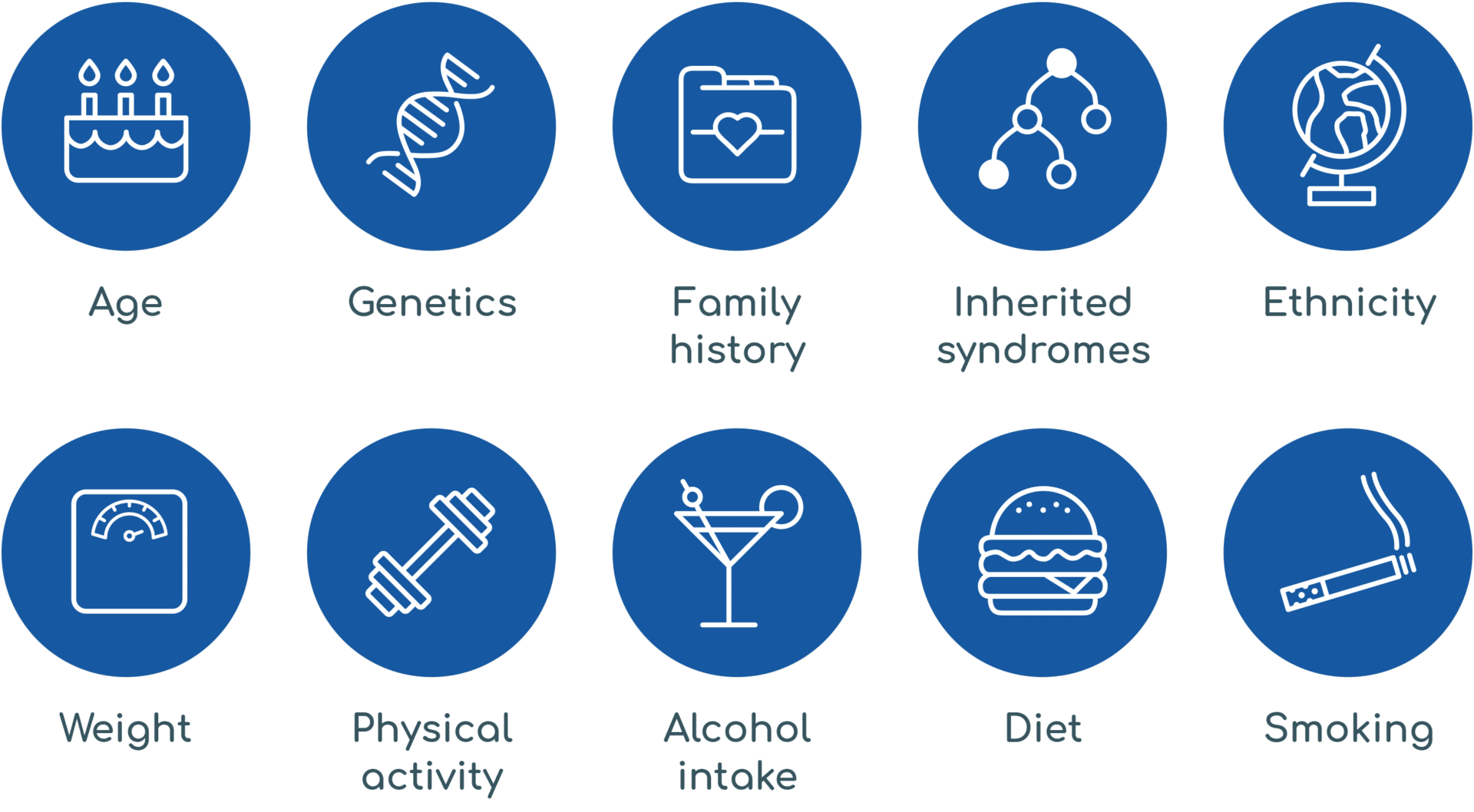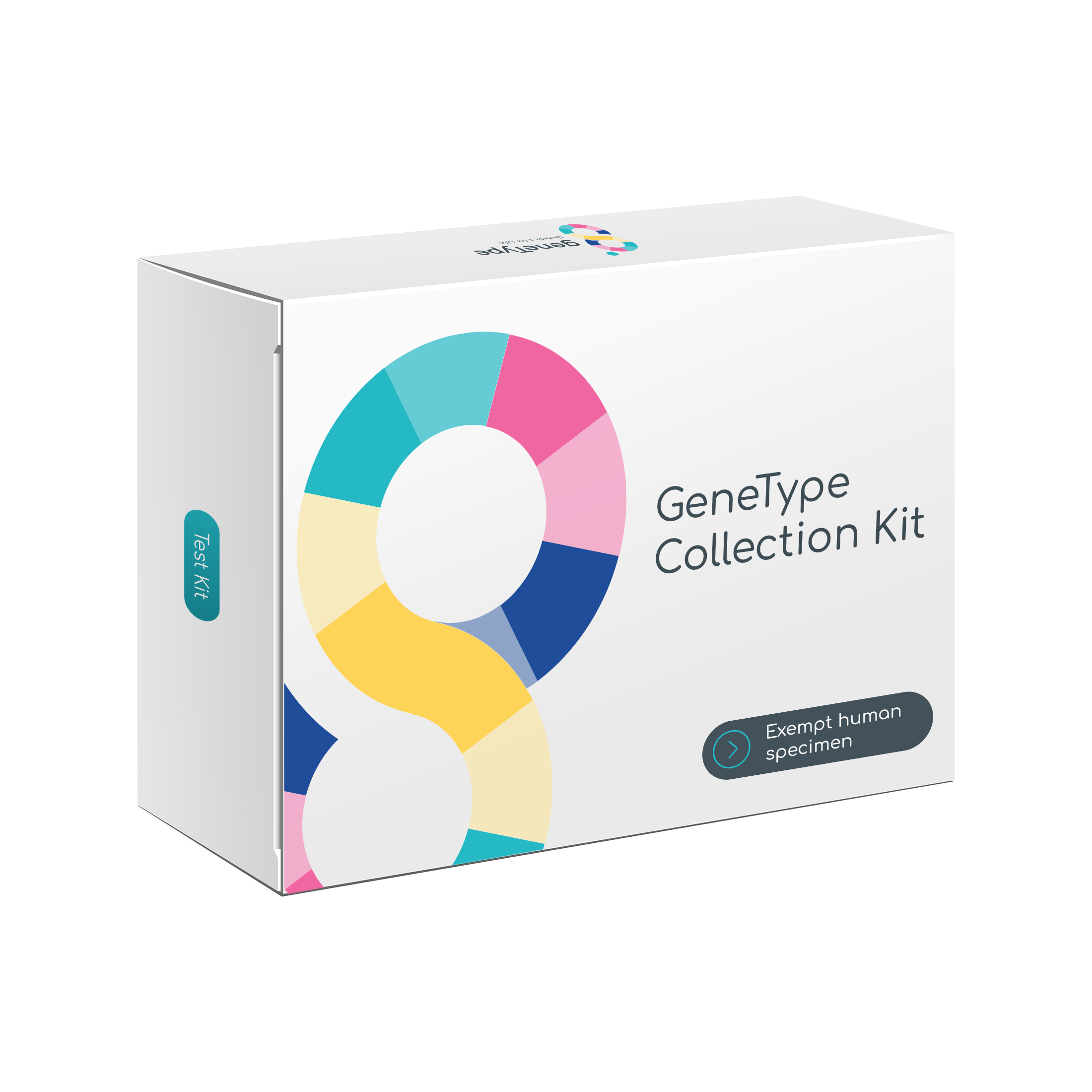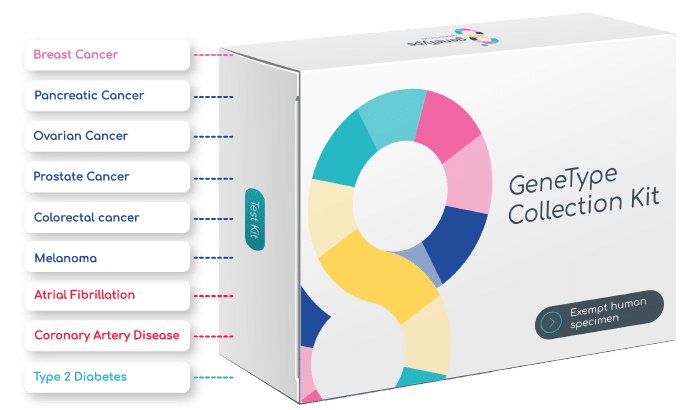Don’t let your colorectal cancer risk go unmanaged
Most colorectal cancers occur in people with no significant family history1. Be proactive about your health.
Know your risk, to manage your risk.

Most colorectal cancers occur in people with no significant family history1,2
This is because many factors can increase your risk of developing colorectal cancer.1

One report.
Actionable results.
GeneType reports help you and your health provider translate your personal clinical, family and genetic data into an actionable preventive health plan.
Key features of a geneType report
- A snapshot of your overall risk: either average or increased
- Your risk scores: this includes your lifetime and 10-year risk score These scores help determine whether your healthcare provider will recommend additional screening or other risk-reducing options
- A review of your personal risk factors that are included in the geneType test, including your polygenic risk score that we determine based on your DNA
- A section that explains common risk factors, (some of which may be modifiable) and recommendations that your health provider may discuss with you in more detail
Sample patient report
Personalized risk score. Personalized health plan.
GeneType for Colorectal Cancer can help you and your health provider develop a risk reduction health plan just for you.
Depending on your risk, your healthcare provider may discuss some or all of the following:
- Cancer prevention specialist/high risk center referral
- Additional screening (colonoscopy, FIT, FOBT)
- Medication
- Diet and exercise modifications
- Smoking cessation
- Alcohol consumption modification
FIT, fecal occult blood test; FOBT, fecal occult blood test.


Uniquely powered to assess your risk
GeneType for Colorectal Cancer is the only test that combines the following to give you a holistic and highly accurate risk prediction score.2
Integrated risk score based on:
- Common genetic markers of colorectal cancer risk
- Your age
- Your family history of colorectal cancer (if any)
Have questions? We have answers.
If your question is not shown here, please contact us directly.
What will my GeneType for Colorectal Cancer results tell me?
Your results will tell you, based on genetics and other risk factors, your risk for developing sporadic colorectal cancer over two different time periods: the next ten years and in your lifetime. Your risk will be compared to the average risk for someone of your age, ethnicity, and sex. You and your health provider can then use this information to develop a personalized screening and risk reduction plan.
How does GeneType for Colorectal Cancer assess my risk?
GeneType for Colorectal Cancer combines several of your risk factors, such as age, family history and your DNA markers, into one comprehensive risk assessment.
Is GeneType for Colorectal Cancer a blood test?
No.
GeneType for Colorectal Cancer collects your DNA from a saliva sample. You spit into the tube, put on the cap and then the tube is sent to our lab for processing.
What is a polygenic risk score?
A polygenic risk score combines the effects of multiple DNA markers to rank your risk against that of the general population. While one or two DNA markers don’t have a strong influence on risk, many markers together can have a larger impact. Your polygenic risk score adds up the effects of many DNA markers.
Will insurance cover this test?
This test is not generally covered by insurance. However, you may use FSA/HSA to pay for the test. Your ordering healthcare provider will discuss the cost of the test with you. A credit card authorization form will be included in the test kit that lists the payment options. Or you will be able to pay via the geneType patient portal.
Know your risk of colorectal cancer so you can take action.

*Patient eligibility dependent on personal medical history, age and sex
Interested in ordering more than one disease? Order geneType Multi-Test.
See individual disease pages for more information about each test.
The Multi-Risk suite of tests is for adults 40-85 years of age. At maximum, a woman would be eligible for 8 diseases in the panel; a man would be eligible for 7. Starting at age 30, a patient may qualify for geneType's cancer risk assessments only.
What’s happening?
Start the conversation about Breast Cancer risk
Under the fluorescent lights of a doctor’s office, it’s not always easy to know what questions to ask. Here are some breast cancer risk questions…
Proactive steps for breast cancer risk reduction
Breast awareness is important whether you are 35 or 75. When you understand your risk, you can be a better advocate for yourself…
GeneType: A new era for Genetic Technologies
Genetic Technologies changed a lot in the last year. Our product innovations, expansion into new therapy areas and acquisitions…
References
- America Cancer Society. Colorectal cancer risk factors. Accessed June 2022.
- Gafni A et al. PloS One 2021;16:e0251469.








